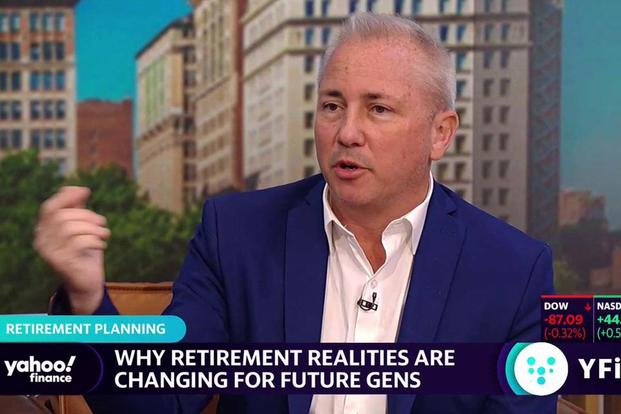As a small-business owner, offering retirement benefits to your employees might be at the bottom of your miles-long, to-do list.
But some financial experts say it could be costing you not to do it.
Chad Parks, founder and CEO of Ubiquity Retirement + Savings, has served small-business owners for more than 20 years. He says that offering retirement benefits to employees is important -- and will only get more so in the coming years.
"People depend on the three-legged stool of retirement savings in America," he said. "Pensions, Social Security and private savings. ... Small-business owners aren't going to set up a pension, but the third leg of that stool comes ideally through tax-advantage retirement plans like 401(k)s and IRAs."
There's a retirement crisis looming in America, Parks said. Vanguard, the Pennsylvania-based investment advisory firm with $5.3 trillion in assets, says the average 401(k) account value for Americans over 65 is less than $60,000. Americans these days can expect to live well into their 80s, which does not bode well for many of those retirement plans.

When Parks started his financial career, 72% of businesses with fewer than 100 employees offered no retirement benefits. With a retirement crisis on the horizon, states are beginning to take notice.
Already, four states -- Illinois, Connecticut, Maryland and Oregon -- have introduced legislation to force small businesses with fewer than 50 employees to offer such benefits. California may order businesses with as few as five employees to do so.
Aside from the law, Parks said offering retirement benefits is just good business.
"Look at it from a life-cycle perspective," he said. "After health care, the most requested benefit employees look for is retirement. You'll be able to retain your best employees when they go looking for other work. You may not be paying top dollar, but, hey, you've got a nice benefits package. It's a great culture."
John Noll, an Afghanistan veteran who runs Swatara Coffee Company in Jonestown, Pennsylvania, says offering his workers a pension is just the right thing to do.
"I wanted to provide this benefit as a way to inspire our team members to action, as well as demonstrate our appreciation of their work," Noll said. "I've created an organizational culture that values and respects the employees. Adding a 401(k) benefit is right in line with this, and I imagine our team members see this as consistent with my messaging and our culture."
With 2.4 million veteran-owned businesses in America, many of them small, a new retirement plan is a lot of new financial responsibility. But there is good news.
First, the idea that a business must contribute to its employees' retirement, called matching, is a misconception. In reality, Parks said, all you have to do is set up a savings plan for them and let them defer their own incomes.
Companies like Parks' Ubiquity Retirement + Savings can set it up for you.
Second, setting up a retirement plan for your employees could ultimately be free.
"The government is so serious about having business owners sponsor and put in a retirement plan for the employees that it's willing to give a very large tax incentive for them to do so," Parks said.
He's referring to the SECURE Act, signed by President Donald Trump in the first week of 2020.
It stands for "Setting Every Community Up for Retirement Enhancement" and is designed to incentivize small businesses to set up automatic enrollment in retirement accounts for employees.
"The way the math works is $250 per employee per year tax credit, not to exceed $5,000," Parks said. "So if you have a 20-person company, 20 times $250 is 5,000 -- a $5,000 tax credit to offset any expenses establishing a retirement plan. And I can tell you that, in our case, our plans for a 20-person company don't cost anywhere near $5,000."
As far as when to start saving for retirement -- and helping your employees do so, Parks cites an old adage: "When is the best time to plant a tree? The answer is 20 years ago. The second-best time? Right now."
-- Blake Stilwell can be reached at blake.stilwell@military.com.
Want to Know More About Post-Military Careers?
Be sure to get the latest news about post-military careers as well as critical info about veteran jobs and all the benefits of service. Subscribe to Military.com and receive customized updates delivered straight to your inbox.
















